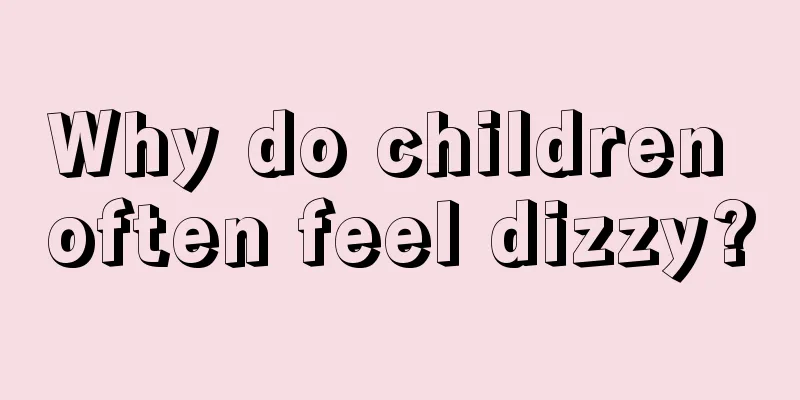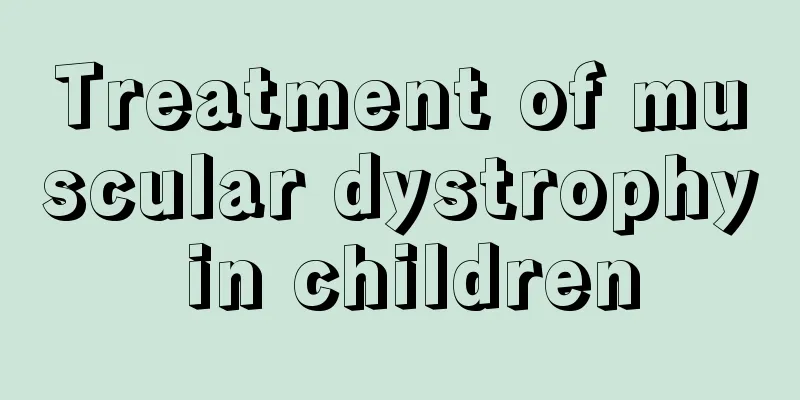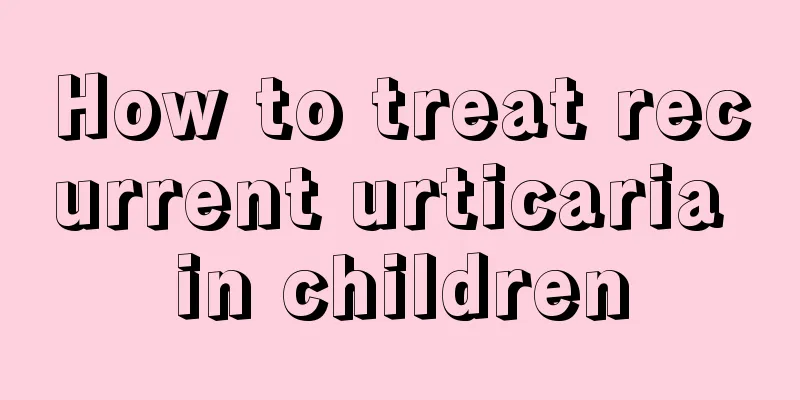Why do children often feel dizzy?

|
Dizziness can occur alone or as a manifestation of other diseases. It is very common in daily life. The reasons for dizziness in adults and children are definitely different. If the child is young and often dizzy, as a parent, you will definitely worry that it will cause more serious consequences and you will want to know what is wrong with the child. So, why do children often feel dizzy? Let’s take a closer look below. Headache refers to pain in the area above the eye sockets and occipital area. This is one of the common symptoms of neurological diseases in children, often extracranial diseases Caused by illness. Scientific principles/background knowledge: Headaches can be acute or chronic. When acute headache is accompanied by fever and vomiting, the first thing to consider is to exclude infection of the central nervous system; When chronic headaches are accompanied by vomiting but no fever, the most important thing to consider is whether there is a tumor in the brain. Among all types of headaches, tension headaches and vascular headaches are more common, and headaches caused by intracranial space-occupying lesions are only a minority. However, if not diagnosed in time, it often leads to serious consequences. First: It is necessary to rule out the child's blood system disease. The most common one in children is nutritional iron deficiency anemia. This is the most common anemia in children in my country. The most common one. If the child is severely anemic, it can cause dizziness, fatigue and other symptoms. The simplest way is to give the child a Routine blood test. Second: It may be orthostatic adjustment disorder, which is obvious when the child gets up in the morning or stands up from a squatting position. This disease is not related to the heart or brain. The disease will gradually improve or heal with age. Third: Pay attention to whether the child has the possibility of viral myocarditis. This disease is often seen after the upper respiratory tract infection, and the virus invades the myocardium. The child may show Symptoms include fatigue, palpitations, chest tightness, dizziness, etc. Electrocardiogram combined with myocardial enzyme spectrum examination can help confirm the diagnosis. Fourth: Pay attention to whether your child has sinusitis. This disease is also common after repeated upper respiratory tract infections. Children may have headaches, dizziness, and are unwilling to study. Xi, etc., are often more obvious in the morning. The frontal view of the paranasal sinuses can help with the diagnosis. |
<<: What to do if your child is afraid
Recommend
Why do children have runny noses?
In fact, most children have runny noses, which ar...
What are the symptoms of roundworms in children?
Many children have this situation, that is, there...
Is it normal for an 11-year-old girl to have breast growth?
Every child will start to grow taller during thei...
What happens when my child gets blister-like bumps on his body?
Very young children may develop many kinds of ski...
What are the symptoms of a dislocated wrist in children?
Very young children are usually very energetic an...
What are the development indicators of a two-month-old baby?
Many parents are worried about their children'...
What are the precautions for preventing asthma in children?
Childhood asthma is a common respiratory inflamma...
Symptoms of nephritis in seven-month-old babies
Many parents will also find that even children ma...
2-year-old baby wakes up crying in the middle of the night
Parents are all very troubled that their two-year...
Why does a child drool?
Parents all hope that their children can grow up ...
The baby was born with a soft bump on his head
The baby will stay in the mother's belly for ...
What are the recipes for children's cough?
A child's cough is a headache for parents, an...
How to feed a newborn baby?
Many first-time mothers don’t know how to breastf...
Do all babies get roseola infantum?
In fact, pediatric emergencies are very common in...
How long does it take to cure infantile bronchitis?
Infants are more susceptible to diseases due to t...









